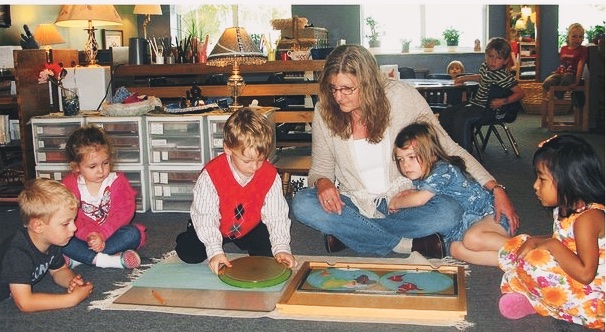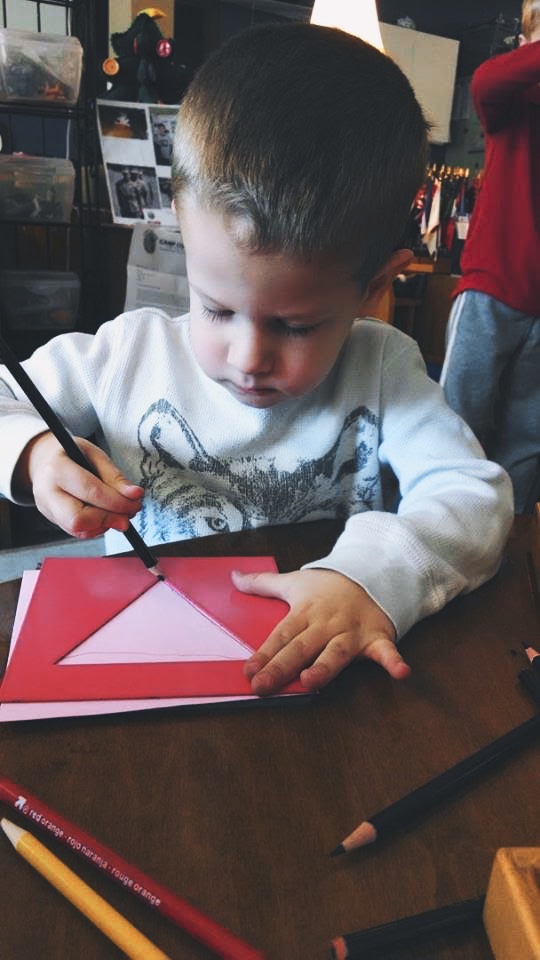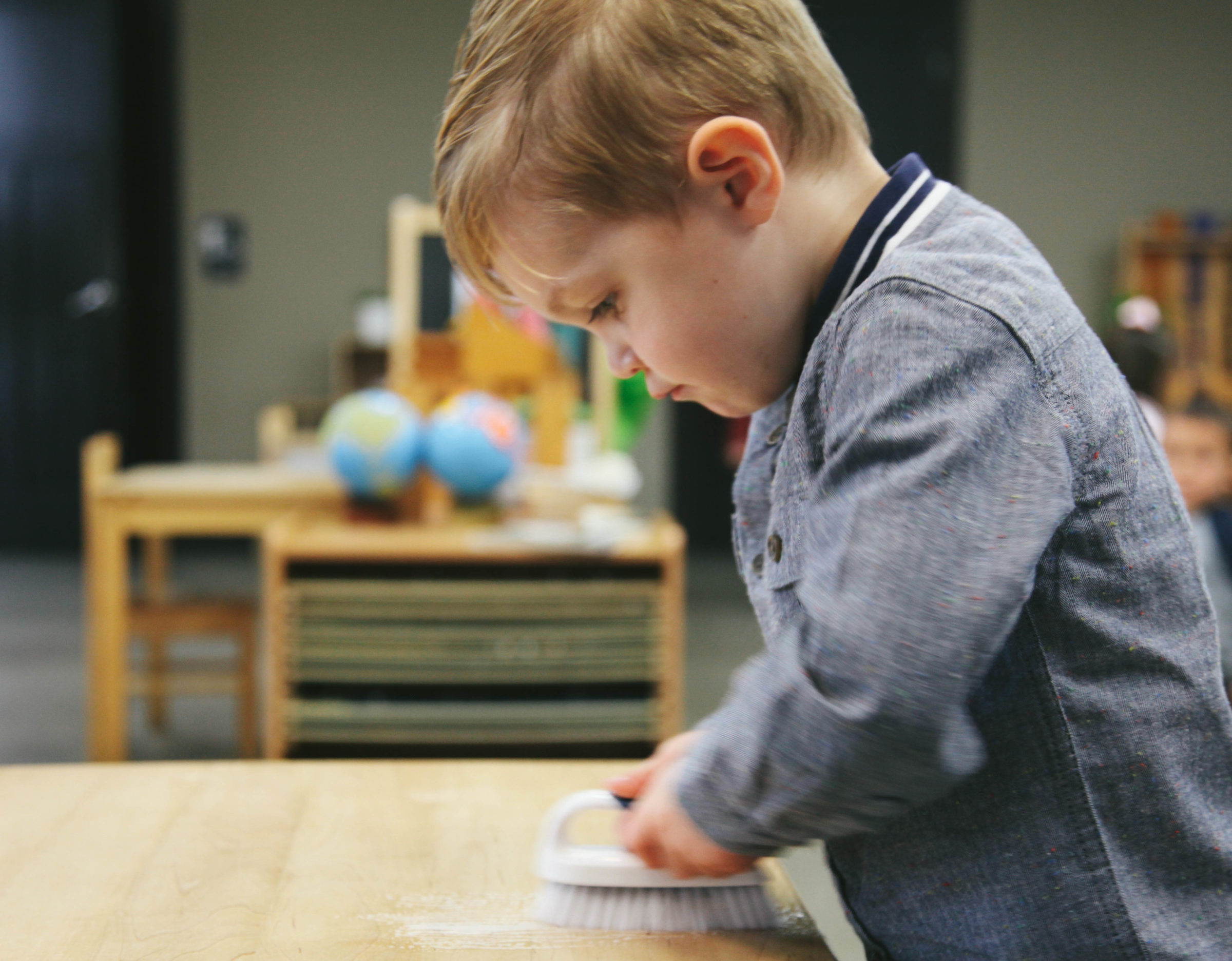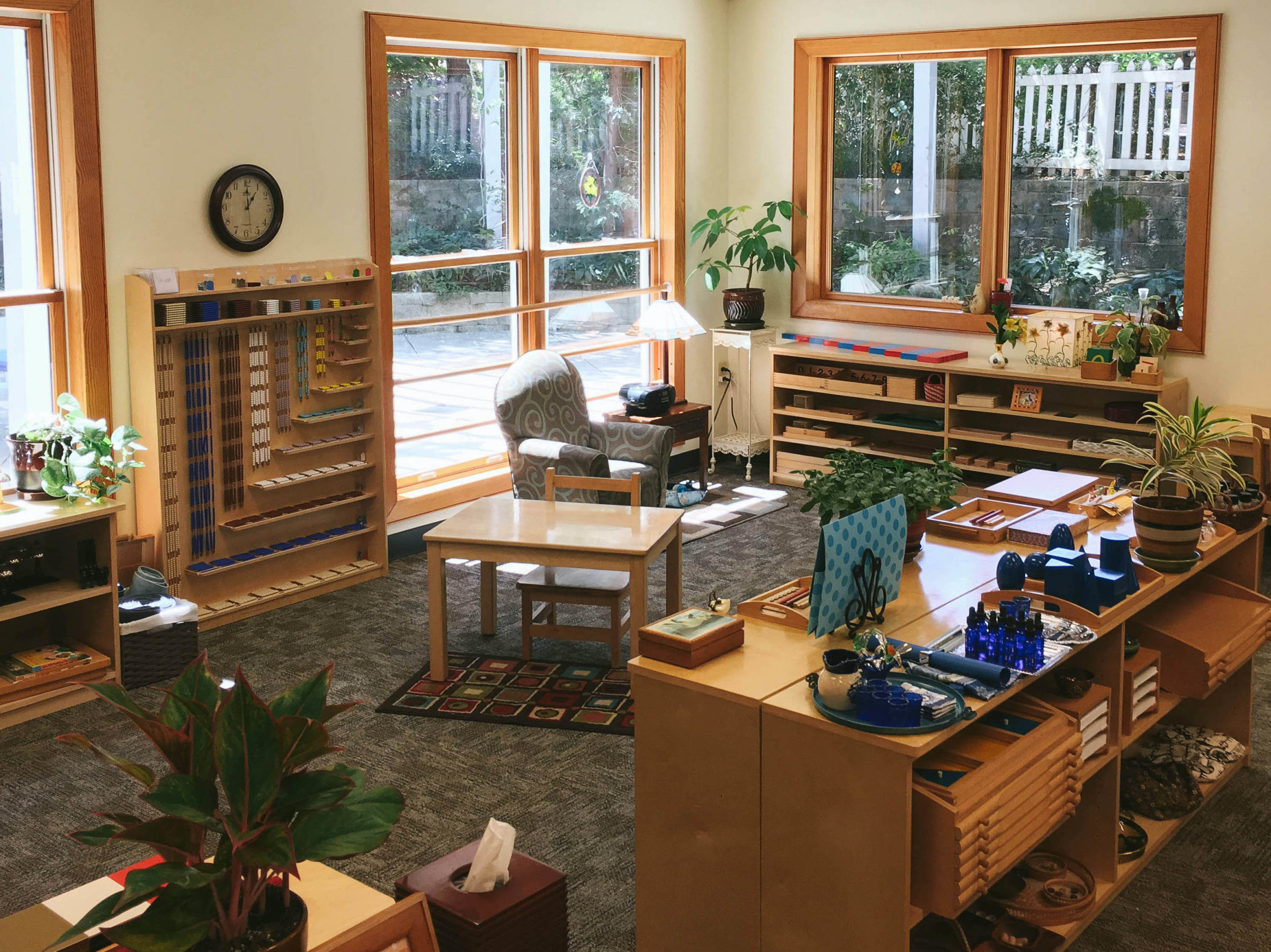Spotlight Charlotte Cushman
Spotlights
Q: Can you tell us a little bit about yourself? Your background, your interests, your dreams?
Ever since I was a child I wanted to be a teacher. I majored in elementary education at Lewis and Clark College, Portland, Oregon. While there I went on an overseas study program to Japan where I did an independent study project on Japanese child discipline. Immediately after graduation I went on to take my Montessori training from Lena Wikramaratne, an AMI instructor who was a friend and colleague of Maria Montessori. Since then I have taught for over 40 years. During that time I have also co-owned and co-directed two Montessori schools.
Besides my devotion to education, I also love to write. I have authored numerous articles about child development and Montessori, and have been published in periodicals such as “Montessori Life,” “Montessori Courier,” “Public School Montessorian,” “Montessori Parent,” and the newsletter for Putting People First. On December 1, 2014 my first book, Montessori: Why It Matters for Your Child’s Success and Happiness, was published. On July 4, 2017 my second book was published called Your Life Belongs to You, a children’s history book about the founding of the United States.
I also like to speak. I have delivered presentations to various community, parent, and Montessori teachers’ groups on child development, discipline and the Montessori philosophy and method.
I take the development of the child seriously. I am completely devoted to the idea that education, rather than merely presenting knowledge, needs to develop the child’s reasoning mind through reality, order and logic.
Besides education, writing and speaking I love to knit, sew quilts, read and spend time with my family and at our cabin in northern Minnesota.
Q: Now that the hardest question is out of the way: What’s your favorite color?
Lavender. It has been my favorite ever since I was a child.
Q: Do you have a favorite book?
Atlas Shrugged by Ayn Rand.
How about a film?
The Sound of Music is my number one favorite, but I also love To Kill a Mockingbird.
Q: When you close your eyes late at night, and imagine waking up and starting a new adventure: what is that adventure?
My life is already an adventure. I have many interests and things I like to do. I am very happy and satisfied with my life and have no desire to change it.
Q: What first appealed to you about Montessori?
The fact that in Montessori education there is an order to what is being taught, that the order is sequenced from concrete towards the abstract in a step by step manner, that the teacher is shown exactly how to present lessons and that those lessons have variations and extensions. This was very unlike what I learned in my elementary education classes in college where they just threw us into a class with children and told us to teach them.
Q: What advice do you have for new Montessori adults?
Don’t get sucked into current educational fads and trends. Stick to Montessori. It works.
Q: Did you have a “Montessori Moment?”
Well, there are many, but one that stands out was with our oldest daughter. She had started asking us about letters when she was still in the high chair; she would point to letters on cereal boxes and ask us what they were. So by the time she was two years old she knew all the sounds of the letters. We figured she would be an early reader.
She started Montessori school at age two and by age three she was sounding out short phonetic words. At age four she was sounding out longer phonetic words and simple sentences, but she wasn’t actually reading yet. She turned five and still wasn’t reading; she was still sounding out each word, each letter individually. Five and a half arrives and she is still plugging away at words one letter at a time. Five and three quarters, she is almost six. Will she ever read?
One afternoon we went to a shopping mall. The girls were in the back seat looking at our car books. All of a sudden I hear, “Mommy! I’m reading!!” She had picked up a book and had read it from cover to cover! From then on, she was no longer sounding out words, she was actually reading, and not only reading, but with expression. And at the end of first grade she was reading at a 6th grade level. Talk about an explosion!
Q: What’s your favorite Montessori quote?
Oh, my gosh. I have a whole file of them! Here are a few:
“The first essential for the child’s development is concentration. It lays the whole basis for his character and social behavior.”
“Do not fear to destroy evil; it is only good that we must fear to destroy.”
“I watched them, seeking to understand the secret of these souls, of whose greatness I had been so ignorant! As I stood in meditation among the eager children, the discovery that it was knowledge they loved…filled me with wonder and made me think of the greatness of the human soul!”
“One of the most remarkable characteristics of a ‘normal’ child is his self-confidence and sureness in action.”
As long as we are on the subject of quotes, here is one of my favorites by Ayn Rand:
If, in any two years of adult life, men could learn as much as an infant learns in his first two years, they would have the capacity of genius. To focus his eyes (which is not an innate, but an acquired skill), to perceive the things around him by integrating his sensations into percepts (which is not an innate, but an acquired skill), to coordinate his muscles for the task of crawling, then standing upright, then walking—and, ultimately, to grasp the process of concept formation and learn to speak—these are some of the infant’s tasks and achievements whose magnitude is not equaled by most men in the rest of their lives.
These achievements are not conscious and volitional in the adult sense of the terms: an infant is not aware, in advance, of the processes he has to perform in order to acquire these skills, and the processes are largely automatic. But they are acquired skills, nevertheless, and the enormous effort expended by an infant to acquire them can be easily observed. Observe also the intensity, the austere, unsmiling seriousness with which an infant watches the world around him. (If you ever find, in an adult, that degree of seriousness about reality, you will have found a great man.)
Q: What inspired you to share your Montessori story?
Shortly after I received my AMI Montessori diploma, I began to teach at a small, private Montessori school owned and operated by a group of parents. Even though the parents liked the positive results they saw in their children because of the Montessori experience, they did not understand why it worked. They requested that I write short essays explaining the method that could be distributed to the rest of the parents in the school. I continued that practice at every school I worked at after that. Parents and teachers alike found the articles of value and urged me to get them published in book form. Montessori–Why It Matters for Your Child’s Success and Happiness is the result.
Q: What advice do you have for new parents trying to incorporate Montessori at home?
The most important aspect is that of independence. Encourage your child to do as much as he can for himself and be patient as he learns. Then sit back and enjoy the results as his self-confidence and joy in life grows.
Q: What do you think is the best introduction to Montessori?
Observing an authentic Montessori classroom. You can try to explain Montessori, but the best way to introduce it is to see it in action. Then, after that, give them my book. (Grin.)
Q: What continues to inspire you about Montessori?
The self-confidence and joy it brings to children as they become more and more independent.
Q: In what ways do you envision the future of education?
I would love to see education privatized. Then the best systems of education will rise to the top and children will be educated, rather than indoctrinated.
Q: Where do you see Montessori in the next 100 years?
Should our country re-discover freedom, with education privatized, Montessori will become the normal means of educating children. There will be beautiful schools everywhere, instead of buildings that look like prisons.
Written by:
Charlotte Snyder






